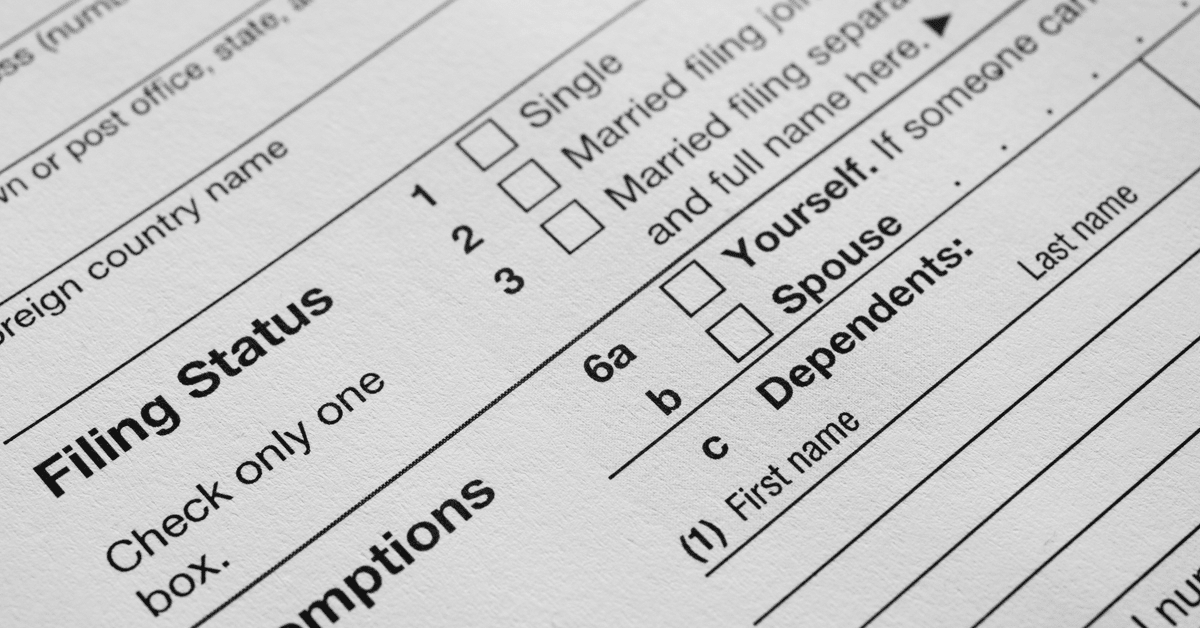
Meeting tax deadlines is crucial for taxpayers, but life circumstances sometimes make timely filing difficult. Missing the IRS filing due date can lead to stressful consequences, including penalties, interest, and escalating debt—particularly for those already dealing with significant tax issues.
Understanding the deadlines and knowing what steps to take if you can’t file your tax return on time is essential to avoid unnecessary financial penalties and legal complications. If you’re unable to meet the tax filing deadline, it’s necessary to make formal requests for an extension to avoid penalties.
If you can’t meet the tax filing deadline, it’s essential to know that resolutions are available, such as filing for an extension. At Lothamer Tax Resolution, we specialize in helping individuals with significant tax liabilities get back on track, providing personalized guidance for complex situations.
Introduction to Tax Filing
Tax filing is submitting a tax return to the government detailing an individual’s or business’s income, expenses, and other financial information. For most calendar year filers, the federal income tax return is due April 15. This date is crucial as it marks the deadline for filing your tax return and paying any taxes owed for the previous year. Missing this deadline can result in possible penalties and interest on unpaid taxes.
Taxpayers have the option to file their tax return electronically or by mail. Electronic filing (e-filing) is often preferred due to its speed and accuracy. However, if more time is needed to gather the necessary documents, taxpayers can request an extension to file their return later. Understanding these tax deadlines and due dates is essential to avoid unnecessary financial penalties and ensure compliance with federal income tax regulations.
Overcoming the Challenge of Filing on Time
Tax deadlines might seem straightforward, but life can easily complicate things. Knowing the specific dates, understanding the repercussions of missing them—such as penalties, interest rates, and possible additional fees—and accurately estimating your tax payments are key to staying compliant and avoiding costly consequences.
Filing taxes can be stressful, mainly when unexpected life events occur. It’s crucial to claim all eligible tax deductions and refunds owed to you and amend for any tax credits you might have missed. Missing deadlines can lead to significant financial penalties, so staying organized and informed is essential.
Important Tax Filing Deadlines
Most taxpayers’ last day to file annual federal income tax returns is April 15, 2025. In years where April 15 falls on a weekend or a federal holiday, the IRS typically shifts the filing deadline to the following business day. It’s important to remember that this deadline isn’t just for submitting your tax return—it’s also the date by which you must pay the estimated taxes you owe for that tax year.
If you expect a refund, you must ensure the tax was paid and any remaining balance for that tax year by April 15 to receive your refund promptly.
If you anticipate being unable to file your return by this date, you can request an automatic six-month extension, moving your filing deadline to October 15. However, an extension only provides extra time to submit paperwork; the IRS still expects payment by the original April deadline to avoid a penalty.
Tax Deadlines for Businesses
Businesses, like individuals, must adhere to specific tax deadlines to comply with IRS regulations. For most corporations, the deadline to file federal income tax returns is the 15th day of the fourth month following the end of their fiscal year. For calendar-year filers, this date typically falls on April 15. However, if this date falls on a weekend or a legal holiday, the deadline is extended to the next business day.
Businesses must know these deadlines to avoid penalties and interest on unpaid taxes. Additionally, they may need to make estimated tax payments throughout the year to cover their liabilities. Missing these deadlines can lead to significant financial consequences, making it crucial for businesses to stay organized and plan.
What Happens If You Miss the Deadline?
Missing the April 15 deadline without filing for an extension or making necessary payments results in immediate financial consequences, no matter the circumstances. The IRS penalty applies for late filing and payments, significantly increasing the amount owed. These penalties can change without prior notice. The failure-to-file penalty is 5% of your monthly unpaid taxes (up to a maximum of 25%), while failure-to-pay penalties accrue at 0.5% per month on outstanding balances.
If you delay filing, the IRS can escalate enforcement actions, such as filing liens against property or garnishing wages. Not only that, but prolonged noncompliance increases the overall complexity of your tax situation, making it more challenging and costly to resolve in the future.
How to File a Tax Extension
Missing the tax filing deadline can feel stressful, but there’s a practical solution: requesting an extension. To obtain additional time, you’ll need to follow the instructions for Form 4868, known as the Application for Automatic Extension of Time to File. The tax extension deadline is also April 15, so you must notify the IRS promptly if you need additional time. You will know immediately if your extension request is accepted.
Filing this form grants you an extra six months to complete your return, extending the deadline from April 15 to October 15. Form 4868 is straightforward and can be submitted online through IRS-approved e-file services or mailed directly to the IRS. When a tax return is electronically transmitted to the IRS, it avoids potential issues associated with paper filing, such as loss in the mail or delays. File fees may be related to third-party online submission services, and terms and conditions apply.
Common Mistakes to Avoid When Requesting an Extension
Many taxpayers make avoidable errors when requesting extensions, which can result in penalties or additional complications. Ensuring you are eligible for an extension and understanding the criteria can help prevent these issues.
A common mistake is underpayment of estimated taxes owed, leading to significant penalties when the wrong amount is paid. Others fail to submit Form 4868 before the April 15 deadline, negating the benefits of an extension.
To avoid these pitfalls, ensure accurate estimates of your tax liability and submit the extension form on time. Working with a tax professional can help streamline this process, reducing stress and potential errors.
Filing Options
Taxpayers have several filing options, each with its advantages. Electronic filing (e-filing) is the fastest and most accurate way to submit a tax return. This method allows taxpayers to receive their refund quickly through direct deposit into their bank account. E-filing also reduces the risk of errors, as the software typically checks for common mistakes before submission.
Alternatively, taxpayers can file their tax return by mail. While this method is still valid, processing takes longer and may be more prone to errors. Self-employed taxpayers and businesses can benefit from using online tax filing software, which simplifies the preparation and submission of tax returns. Regardless of the method chosen, it’s essential to file accurately and on time to avoid potential penalties.
IRS Penalties and How to Minimize Them
Failing to file or pay taxes promptly can quickly escalate into significant penalties and accumulating interest, worsening one’s financial situation. Taxpayers should know they can check their refund status for the current year and the past two years.
Taxpayers who live in areas affected by natural disasters may qualify for specific IRS provisions, such as automatic extensions for tax deadlines, based on the status of federal disaster declarations. The IRS imposes two primary penalties for missing tax deadlines: the failure-to-file penalty and the failure-to-pay penalty. The failure-to-file penalty is steep, calculated at 5% of the monthly unpaid tax and maxing out at 25%. Additionally, the failure-to-pay penalty is 0.5% per month on the unpaid balance, also capping out at 25%.
Over time, these penalties can substantially inflate the amount you owe, quickly turning manageable tax debt into overwhelming financial burdens. Prompt filing, accurate payment of estimated taxes, or seeking professional tax resolution assistance are essential steps to minimize penalties.
Options to Resolve Outstanding Tax Liabilities
If you’ve fallen behind on filing or paying taxes, the IRS offers options to help resolve your debt. Installment agreements are one popular solution, allowing taxpayers to spread payments over a manageable timeframe for their document needs. For taxpayers facing severe financial hardship, negotiating an offer in compromise, or OIC, can also significantly reduce the overall amount owed.
Penalty abatement is another possible remedy for taxpayers who can demonstrate reasonable cause for delayed filing or payment, such as medical emergencies or other hardships. Subject to specific conditions, navigating these options effectively typically requires professional guidance to ensure optimal outcomes. Eligibility criteria and underwriting requirements must be met, and service terms and conditions apply.
Payment Options
When it comes to paying taxes, taxpayers have several convenient options. Payments can be made online through the IRS website, by phone, or by mail. For those unable to pay their taxes in full, the IRS offers payment plans that allow taxpayers to spread their payments over a manageable timeframe.
Taxes must be paid on time to avoid penalties and interest. Taxpayers can use estimated taxes to prepay their tax liabilities throughout the year, reducing the risk of a large tax bill at the end of the year. Additionally, using direct deposit for refunds ensures that any money owed to the taxpayer is received quickly and securely. By understanding and utilizing these payment options, taxpayers can manage their tax obligations more effectively.
Self-Employed Taxpayers
Self-employed taxpayers face unique tax filing requirements compared to those employed by others. They must report their business income and expenses on their tax return and are responsible for paying self-employment taxes. These taxes cover Social Security and Medicare contributions, which are typically withheld by an employer for regular employees.
Self-employed individuals can deduct business expenses on their tax returns, which can help reduce their taxable income. Many self-employed taxpayers prepare and submit their returns using online tax filing software to simplify the process. They can request an extension to file their return later if more time is needed.
Additionally, self-employed taxpayers must make estimated tax payments throughout the year to avoid penalties and interest. These payments help cover their tax liabilities and ensure they comply with IRS regulations. Self-employed individuals can effectively manage their tax obligations and avoid potential financial pitfalls by staying organized and proactive.
How Lothamer Can Help Reduce Penalties and Interest
At Lothamer Tax Resolution, we specialize in negotiating directly with the IRS to reduce penalties and interest charges. Our experienced professionals know how to build a compelling case for penalty abatement, especially for taxpayers with legitimate reasons for late filing or payment.
We thoroughly assess each client’s financial situation, help establish accurate estimates, and ensure the timely filing of all necessary documents. We also encourage clients to file electronically to expedite the process and reduce the risk of delays. By partnering with Lothamer, taxpayers gain a knowledgeable advocate dedicated to minimizing penalties, negotiating manageable payment plans, and restoring financial stability.
We can help you complete all required forms accurately and submit them on time. By partnering with Lothamer, taxpayers gain a knowledgeable advocate dedicated to minimizing penalties, negotiating manageable payment plans, and restoring financial stability.
Get Professional Help Filing Back Taxes with Lothamer Tax Resolution
Dealing with tax issues alone can be overwhelming and stressful, especially if you’ve missed deadlines or accumulated significant tax debt. As a calendar year filer, it is crucial to understand the specific deadlines and requirements for filing your federal income tax returns. Seeking professional assistance from Lothamer Tax Resolution provides the expertise, guidance, and advocacy you need to resolve your situation efficiently. Understanding the tax deadline and the consequences of missing it can help you avoid penalties and interest charges.
Your Trusted Tax Resolution Experts Across the Midwest
With a proven track record of helping taxpayers across the Midwest, Lothamer Tax Resolution has established itself as a reliable partner for those facing complex tax challenges. Visit our ‘Let us help you’ page for more information on how we can help you. We have successfully helped countless clients negotiate payment plans, reduce penalties, and resolve longstanding IRS issues.
Don’t let missed tax deadlines or overwhelming tax debt affect your peace of mind. Contact Lothamer Tax Resolution online or at 877-955-9020 for a confidential consultation and to regain control of your financial future.
"*" indicates required fields




